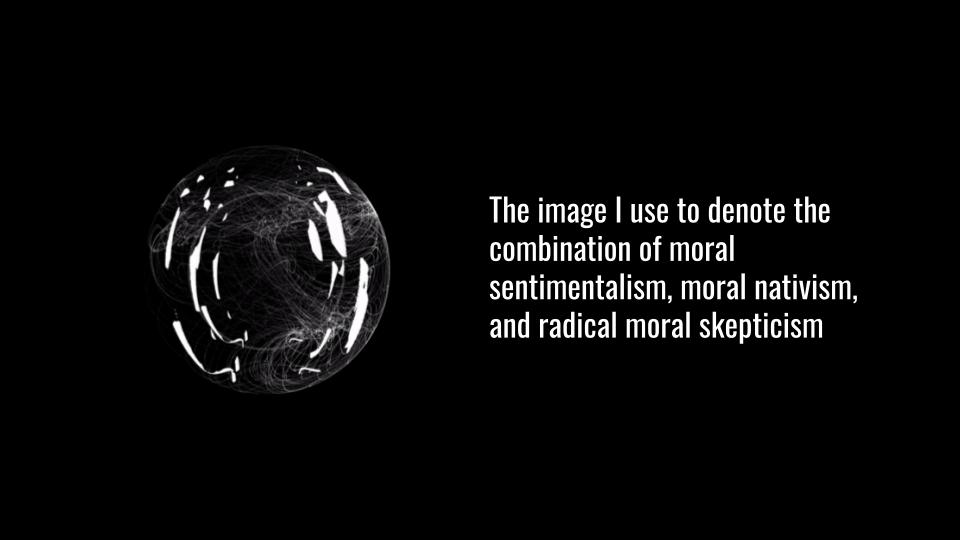The Fall of the Prince

So long as you promote their advantage, they are all yours, as I said before, and will offer you their blood, their goods, their lives, and their children when the need for these is remote. When the need arises, however, they will turn against you. The prince who bases his security upon their word, lacking other provision, is doomed… Men are less concerned about offending someone they have cause to love than someone they have to fear. Love endures by a bond which men, being scoundrels, may break whenever it serves their advantage to do so; but fear is supported by the dread of pain, which is ever present.
~Niccolò Machiavelli
Validation

As we transition into the last unit of this course, we move towards assessing whether or not any of our ethical theories have any empirical validation (i.e., support from the social sciences) at least with regards to the empirical (or testable) claims that they make. It must be clear, of course, that science cannot directly address questions of morality. In other words, there is no experiment (or set of experiments) that can be performed that would arrive at a conclusion on what actions are morally right and what actions are morally wrong. This is because the property of moral wrongness is, according to most moral objectivists, non-physical, and hence can't be tested for by science. Perhaps some utilitarians would argue that moral wrongness just is the mental state of pleasure, but we cannot assume that hypothesis from the start. As G.E. Moore argued, there is still an open question on the matter. It's also the case that moral nativists would have us assume that moral judgments come from our innate morality module. Even if we accept this, however, we would only be able to study the workings of the morality module, not moral properties themselves. Recall that moral nativism pairs well with moral skepticism; if so, there's no objective moral properties to be studied (since they don't exist). In short, science can't help us discover what is moral and what is immoral (unless you assume hedonism); science can, however, help us discover how we make moral judgments as well as assess the empirical claims of ethical theories.1
Despite the limitations of science on being able to directly address moral questions, it appears that various ethicists of the past made non-moral empirical claims while they were theorizing about their moral views. As such, this gives us an opportunity to collect the empirical claims made by ethical theorists and check if they are true or not using the latest science. Although this will not resolve the fundamental normative question of what is morally right and morally wrong, it will let us assess each theory more holistically, to see if they have any empirical weak points. This can surely partially inform us as to whether the theory has any merit, generally speaking.
But of course, many of these theories were written a long time ago, without the benefit of modern science. So we must be careful (and perhaps charitable) in our re-interpretations. Experts on textual interpretation (e.g., Ricoeur 2007) argue that in order to understand a text you must take into consideration: the historical background in which the text was written, how this historical background affected the author, the historical background of the reader (i.e., you), and how your historical background affects you. Although there are many differences between our historical context and that of the various ethicists we've covered, perhaps the most relevant one scientifically is the dawn of Darwinian thinking in the social sciences. As such, we will take care to try to incorporate, whenever possible, Darwinian processes into ethical theories of the past—a controversial approach for some, I'm sure. For more information on Darwinian thinking, see this lecture by Daniel Dennett.
"Whenever Darwinism is the topic, the temperature rises, because more is at stake than just the empirical facts about how life on Earth evolved, or the correct logic of the theory that accounts for those facts. One of the precious things that is at stake is a vision of what it means to ask, and answer, the question 'Why?'. Darwin's new perspective turns several traditional assumptions upside down, undermining our standard ideas about what ought to count as satisfying answers to this ancient and inescapable question. Here science and philosophy get completely intertwined" (Dennett 1996: 21).

Although I don't expect a ton of outrage against this approach from college students, let me just make the following points before beginning. As previously stated, looking at the relevant data from the cognitive sciences will not help us answer what we may call the fundamental normative question; in other words, we won't get an answer to the question about what is morally right and what is morally wrong. But following a trend in Philosophy that began in the middle of the last century, we can attempt to "naturalize" ethics. That is, we can assume that what we should do (a normative matter) in some way has something to do with what we can do (a descriptive matter). In other words, if science can help us understand what we're really like, then maybe it can help us realize what we can and should do.2
Relatedly, I should tell you that some philosophers do not tire of reminding us that there is a difference between is and ought, between how things are and how they should be. They do not believe that science can in any way help advance the field of ethics. To answer this question fully would require a whole other course, but we can say this much here: ethicists (who allegedly focus only on the normative) make a large number of empirical claims. They make so many empirical claims, in fact, that literally the rest of this course will be devoted to pointing them out and assessing whether they are true or not. In short, I think looking at the relevant science is worth our time.


Important Concepts
The Prince

We will begin in the same way that we started: with the question of psychological egoism. As you recall, we covered two ethical theories borne out of psychological egoism. One is ethical egoism—a simple theory with not much substance and hardly any applicability, as we saw in Unit II. It's cousin, Hobbes' social contract theory, is a much more formidable foe. In fact, there are many social contract theories, but Hobbes' version (or something very similar) has been alluring to some thinkers for centuries. If we allow into the analysis the precursors of Hobbes' theory, then we can say that this view has seemed to be intuitively true to some thinkers for millennia. We think that perhaps the Greek Protagoras held this view over two thousand years ago and, around the same time, Plato felt the view was enough of a threat to his view, that he dedicated most of The Republic to addressing it, featuring Glaucon as the representative of the view.
At the heart of both of these ethical theories is an empirical hypothesis: psychological egoism. This is the view that all human actions are driven by self-interest. Why is it empirical? Because in order to know if it's true or not, it is not enough to just think. We must see what humans are like. We must systematically analyze them. We need to study their motivational states and their behaviors, and we need to determine whether behind every behavior there is in fact some self-interested motivational state. In fact, even one example of non-self-interested behavior will undermine psychological egoism. For millennia, we have not had the experimental tools to peer into this mystery of human motivation. But some researchers think we now do.
All the while, psychological egoism has continued to flourish in some disciplines, although it now goes by the name of rational choice theory, as noted in the Important Concepts. For example, in the 1940's, John von Neumann made rational choice theory an axiom of the new field of game theory. It is also an axiom in the neoclassical approach to economics, which—as of this writing—is still the mainstream approach in the field. And of course, rational choice theory is assumed in some political theorizing, like Glaucon, Hobbes, and, famously, Niccolò Machiavelli, who defended this view in The Prince in the 16th century (see also the epigraph at the beginning of this lesson). So it appears that if we show psychological egoism (a.k.a. rational choice theory) to be false, not only are ethical egoism and Hobbes' social contract theory shown to lack empirical validation, but a fundamental axiom of some disciplines may be called into question.
The death of an idea
According to some theorists, what sets science apart from other forms of inquiry is its embrace of failure. For example, Firestein (2015), who is himself a biologist, wrote Failure: Why science is so successful to dispel a common misconception of the non-science professional: the belief that failure in science is bad. Failure is a necessary ingredient in science. More than that, people have a misguided conception of the actual process of science; they think that you just use reason, think, and then experiment. However, in reality, playfulness, serendipity, intuition, and accidents all play a role in real science.

I say this here for two reasons. First, Firestein's book really is a great read. Second, if it turns out that rational choice theory is false, then this will be a good thing. Rational choice theory, as we've seen, is pervasive throughout history. It can be found as an axiom of several different academic disciplines. If it were to be proven to be wrong—sure, there'd be a period where some disciplines have to reorganize—but the overall effect on the state of our knowledge would improve. This is because as false ideas are rooted out, this creates an opening for new ideas to be tested out. This is, in fact, the main message of my Introduction to Philosophy course: some ideas must die. Which ideas should die? I'd start with the ones that are demonstrably false (so we can make some room for new ideas!).
What will it take to show that psychological egoism is false? Since the hypothesis in question states that all human actions are rooted in self-interest, it only takes one non-self-interested action to prove the theory wrong. In other words, if there is evidence of any altruistic behavior, i.e., behavior for the sake of another, then this is evidence against psychological egoism. So, assessing the truth of psychological egoism is really the search for altruism.


Assessment of the empirical claims
The State of Nature Hypothesis
Question: Has the centralization of authority reduced interpersonal violence, as Hobbes argued?
This is actually a tough question to answer even with the plethora of available evidence. This is because we must first decide what "war" means. If by "war" we mean organized warfare with a clear hierarchy and a national banner, then obviously "war" is a very recent invention. However, if by "war" we mean organized violence more generally, then it goes far back into our prehistory. Recall that one theory about the downfall of the Neanderthals suggests that organized violence is sapiens' lethal custom. But perhaps that's still not what Hobbes meant. Perhaps "war" should be taken to mean any kind of interpersonal violence, such as assault, homicide, and the like. This debate is thorny, so here's some Food for Thought...
The Hobbesian Social Contract
Question: Did humans submit to a central authority out of self-interest?
To be fair to Hobbes, this a historical question and Hobbes did not have a mature field of history to draw information from. In other words, we have the benefit of a modern science of history, while Hobbes didn't. However, it is still an empirical question, so we need not shy away from searching for an answer; we just won't heap scorn on Hobbes if he turns out to be wrong. Put simply, it is either the case that self-interest drove our semi-settled ancestors to centralize power or it was something else that led to the centralization of power.
We have, in fact, already addressed this question in two past lessons. In Eyes in the Sky we were introduced to the work of James C. Scott (2018), who works on the deep history of the earliest states. As we saw, the states in his dataset reliably used coercion to fill and re-fill their pool of subjects. In other words, "citizens" did not "contract" with a central authority out of their own self-interest; they were captured, enslaved, conquered, colonized, or otherwise coerced into the state. On this point, it seems that Hobbes was wrong.
“If the formation of the earliest states were shown to be largely a coercive enterprise, the vision of the state, one dear to the heart of such social contract theorists as Hobbes and Locke, as a magnet of civil peace, social order, and freedom from fear, drawing people in by its charisma, would have to be re-examined. The early state, in fact, as we shall see, often failed to hold its population. It was exceptionally fragile epidemiologically, ecologically, and politically, and prone to collapse or fragmentation. If, however, the State often broke up, it was not for lack of exercising whatever coercive powers it could muster. Evidence for the extensive use of unfree labor, war captives, indentured servitude, temple slavery, slave markets, forced resettlement in labor colonies, convict labor, and communal slavery (for example, Sparta’s helots) is overwhelming” (Scott 2018: 26-9).
Case closed? Not quite. Just like industrialization happened in different places at different times and in different ways, the settling and centralizing of authority in different polities might have different storylines. In Endless Night (Pt. II) we covered the work of Dartnell (2019), who seeks to understand how the Earth's natural history has shaped human history. One of the many examples that he covers in his Origins is that of naturally-occurring cyclical rapid warming and cooling of the planet. This may have been what caused settling in the area around modern-day Egypt. Briefly, due to rapid desertification, climate refugees crowded around the Nile Valley. This was beyond the ecological carrying capacity of the region and so it was a very unstable arrangement. As such, individuals relinquished their autonomy to centralized bureaucracies which coordinated agricultural practices and thus fed the population. Thus the bureaucracies gained legitimacy and the wheels of statecraft were set in motion. As such, this may be a case of self-interested centralization.
Was Hobbes right on this matter? If we consider this an all-or-nothing affair, then certainly not. If we look at this in terms of degrees, it looks like he was more wrong than right—since cases like that of Egypt appear to be the exception rather than the rule. Nonetheless, he wasn't completely wrong. How much credit should he get? Maybe he just lucked out? I'll let you make up your own mind. Let's say that the question remains open.
The Question of Psychological Egoism
Question: Are all human actions driven by self-interest?
Batson's experiments
In addition to Batson's experiments, several disciplines have something to say on this topic. Please enjoy the slideshow below:
Farewell...
“I’m reminded of the last lines of John Milton’s Paradise Lost. The empirical evidence in preceding chapters has impelled us, with some wistfulness, to leave the Eden of Egoism. We find ourselves in a less secure, more complex world. Like Milton’s couple, we need to reassess what it means to be human” (Batson 2019: 252).
With hindsight, maybe you knew all along that psychological egoism was false. Or maybe you still don't buy that it's false. If that's the case, the ball is now in your court. You must respond to volumes of research in multiple fields to try to rescue this view. For the rest of us, we will side with Darwin who saw that cooperation beats self-interest in the setting of natural selection.
“When two tribes of primeval man, living in the same country, came into competition, if (other circumstances being equal) the one tribe included a great number of courageous, sympathetic and faithful members, who were always ready to warn each other of danger, to aid and defend each other, this tribe would succeed better and conquer the other... Selfish and contentious people will not cohere, and without coherence nothing can be effected. A tribe rich in the above qualities would spread and be victorious over other tribes... Thus the social and moral qualities would tend slowly to advance and be diffused throughout the world” (Darwin, The Descent of Man, 87-88).
I leave you with the words of Peter Turchin... “Machiavelli was wrong” (Turchin 2007: 123).


Although reviewing the social scientific aspects of ethical theories will not resolve the fundamental normative question of what is morally right and morally wrong, it will let us assess each of the theories more holistically, to see if they have any empirical weak points. This approach is inspired by a trend in Philosophy that began in the middle of the last century: an attempt to "naturalize" our philosophical theories.
Taken together, Hobbes' social contract theory (SCT) and ethical egoism (EE) make various empirical claims. Psychological egoism is assumed by both. SCT goes further, claiming that the centralization of authority has reduced interpersonal violence and that rational actors submit to a central authority out of their own self-interest.
There is an active debate about whether the centralization of authority and the rise of nation-states has led to more or less violence, with Pinker and Keeley arguing that Hobbes was right and Ferguson (and others) rejecting Pinker and Keeley's data.
There is also some difficulty in establishing whether or not, historically speaking, rational actors submitted to a central authority out of their own self-interest. This appears to have happened at least once, but with the great majority of nation-states using coercion to reinvigorate its pool of subjects.
With regards to the question of psychological egoism, it appears that multiple disciplines, including social psychology, linguistics, and sociology, have either fully rejected the view or at least many of its researchers are moving away from it.
FYI
Suggested Reading: Batson et al., Is Empathic Emotion a Source of Altruistic Motivation?
Supplemental Material—
Video: C. Daniel Batson, Empathy Induced Altruism
Video: Steven Pinker, A History of Violence
Related Material—
Video: Crash Course, Behavioral Economics
Advanced Material—
Reading: Gregory Wheeler, Stanford Encyclopedia of Philosophy Entry on Bounded Rationality
Footnotes
1. As alluded to above, moral skepticism pairs well with moral nativism. An invaluable source for understanding these complexities is Richard Joyce's Entry on Moral Anti-Realism in the Stanford Encyclopedia of Philosophy.
2. The push for approaching a normative field like Ethics in a more empirically-informed manner is referred to as "naturalizing" the field. This trend is the legacy of one of the greatest philosophers of the 20th century: W. V. O. Quine. He pushed for a "naturalized" epistemology. The basic idea is that if epistemology is concerned with developing ideal knowledge-forming practices, then we should take into account (in some way) how actual knowledge-forming practices work. In other words, the prescriptive (ethics, epistemology, etc.) needs to pay attention in some way to the descriptive (cognitive science, social sciences, etc.). The Stanford Encyclopedia Entry on Willard Van Orman Quine is very helpful for understanding Quine's ideas.

